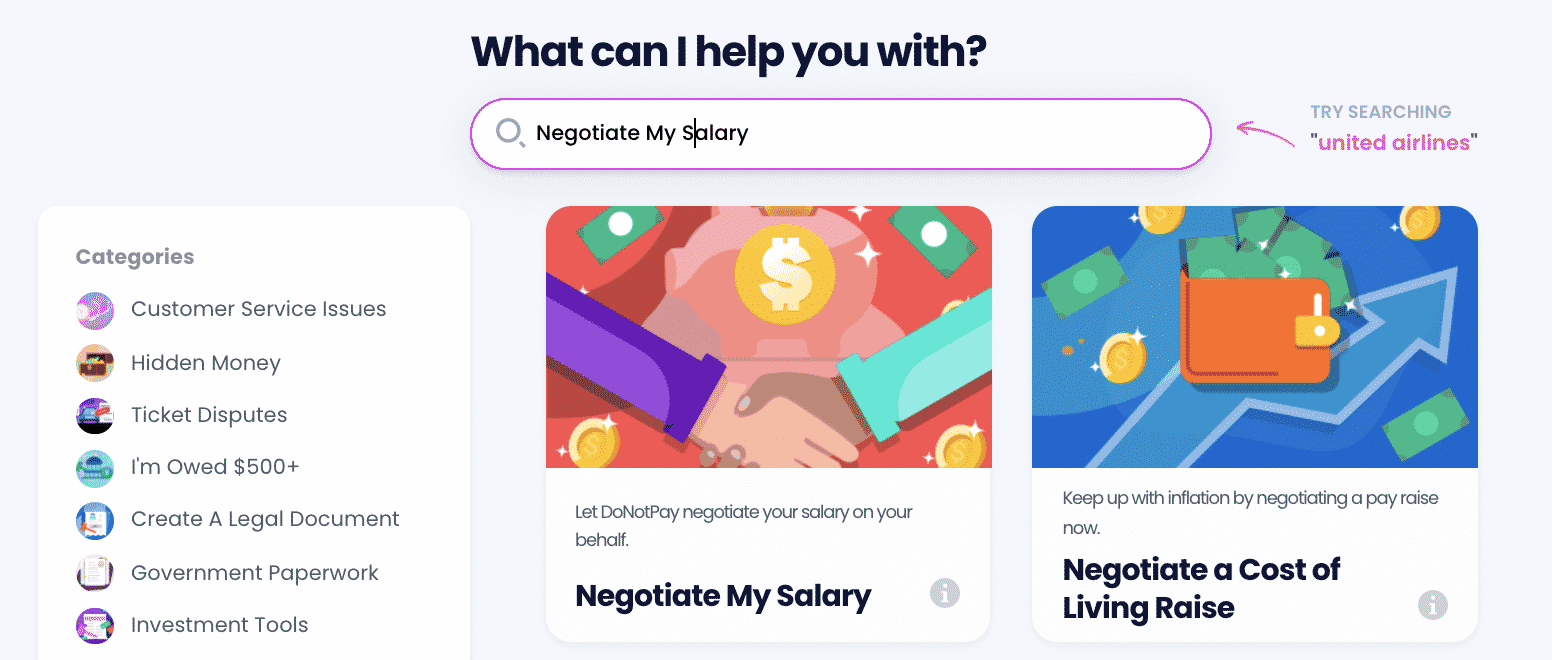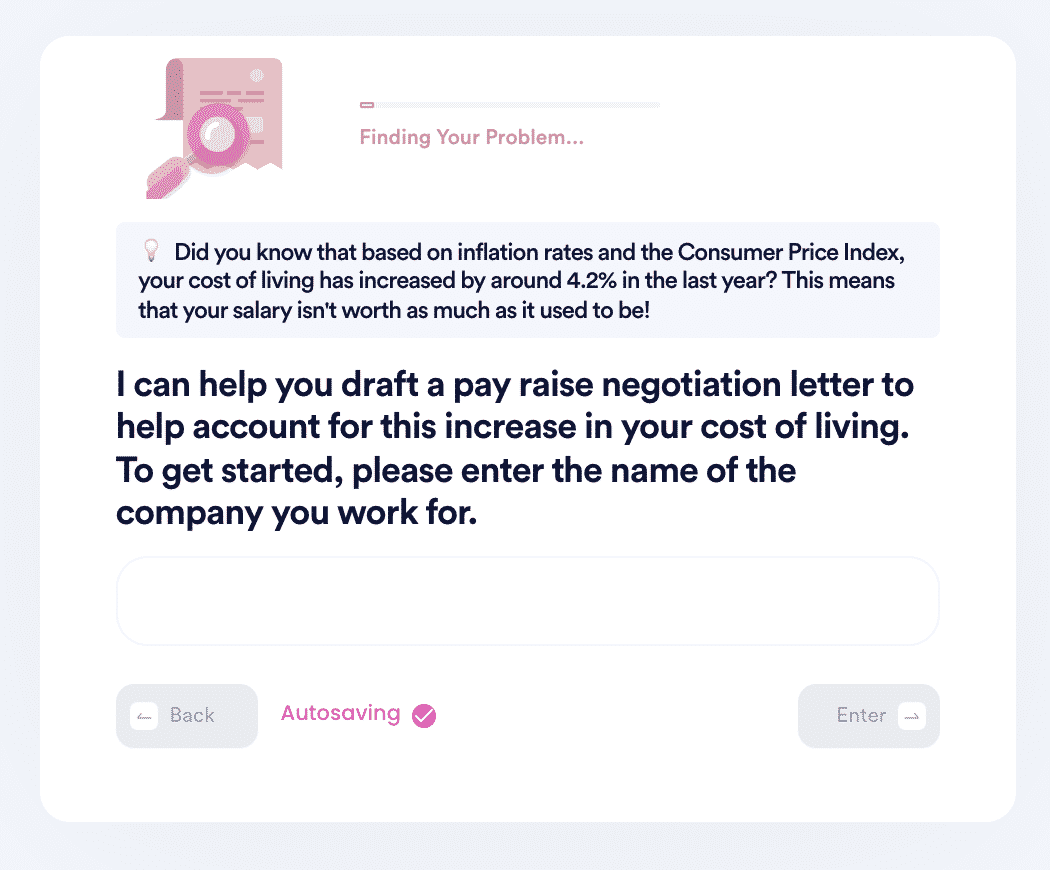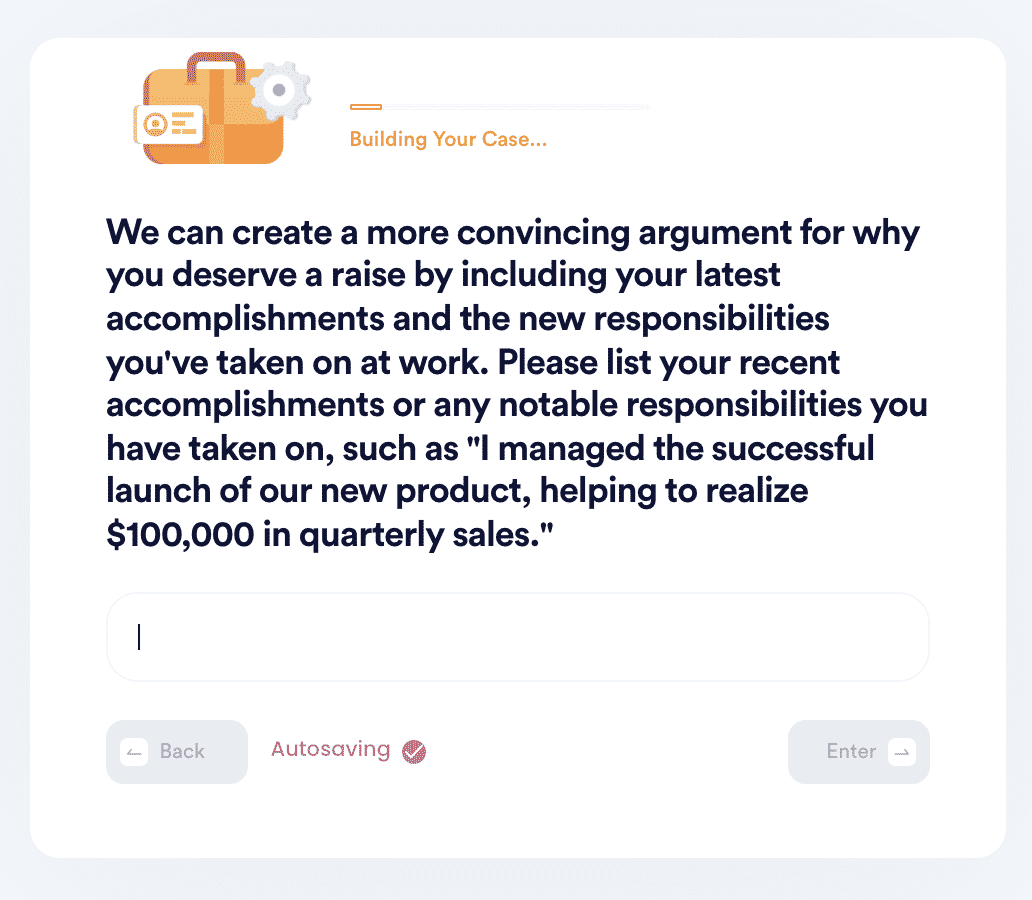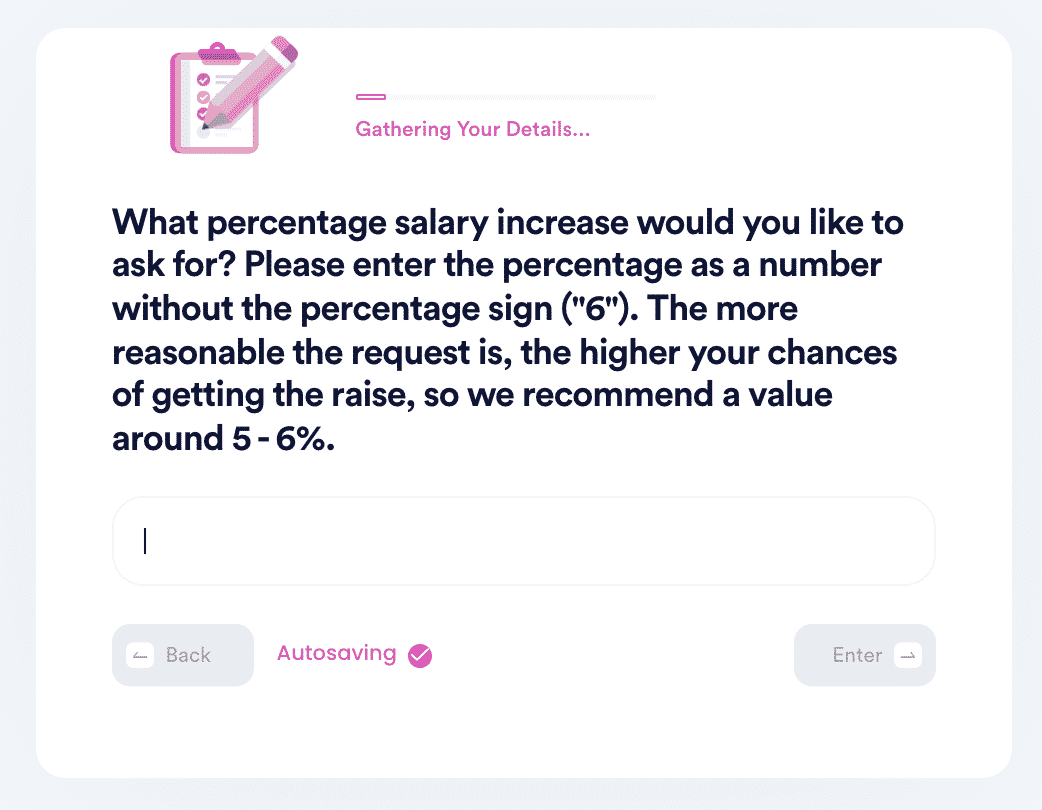Wage Increase or Salary Increase Forms and Templates
There are several different ways to ask for a raise, but a few proven methods. One way is to write a persuasive letter to your boss—using a wage increase or . When you include a few key details in your letter or email, you are more likely to receive the compensation you deserve.
A salary increase form can be a simple format to follow when drafting your letter and requesting a raise. Or, it can also be a form sent to you by your employer documenting your pay raise.
But what if you get one of these forms—and it's not the raise you feel you deserve? We will show you what to do here, read on. Or—skip down to see how DoNotPay can help, quickly and easily.
How a Form / Template Can Help You Get the Best Raise
Negotiating a higher salary is often a challenge. So if you're going to ask for a salary increase, it's important to document why you are asking—and include the amount that you feel you deserve. The easiest way to do this, and to ensure it will work, is to to be sure you don't forget to include something important.
If you follow the format that experts advise, you are more likely to get the salary increase that you are requesting. There is also an easier way—let DoNotPay help, and you'll know the best way to ask for raise, effortlessly.
Reasons to Ask for a Raise
As the cost of living increases, your salary needs to increase along with it. If you don't get an annual raise that is at least equal to the cost of living increase, then it is as if you are earning less and less each year. If this is your situation, you should explain this to your employer—and ask for what you deserve.
Due to record-high inflation in the U.S., Social Security beneficiaries received a 5.9% adjustment in 2022. CNBC reported that this was the highest annual adjustment in 40 years, rising from 1.9% in 2021.
Moreover, here are some solid reasons that warrant a raise:
| The Increased Workload | Whether the extra work is voluntary or allocated by your supervisor, you deserve a pay rise. If you perform the extra work exceptionally, all the more reason. |
| Value of Your Accomplishments | You've bought in a new client or spotted some irregularities in the company's systems averting a major catastrophe. Quantifying these accomplishments to indicate the value they've brought to the company is a genuine reason for a raise. |
| Organization Changes | Did your company bring in a significant client, or opened some more branches in other states? Or maybe merge with another company to form a huge corporation. Such positive and profitable changes avail more resources accommodating a pay rise. |
| Salary Disparities | In your research, you might discover an employee from another industry in a similar position earns more than you do. While it's not ideal to compare salaries, you can make your case and request your manager to consider that pay difference. |
Is It a Good Time to Ask for a Raise?
If you're wondering if it's the right time to negotiate your salary and ask for a raise, refer to this checklist based on information from Indeed. Every employee should keep the following questions in mind:
- Have you been with the company a long time?
- Have your responsibilities increased?
- Have you accepted a promotion without discussing a salary increase?
- Is your company doing well financially?
If the answer to any—or all—of the questions above is yes, then it is the right time to ask for a raise.
How Much of a Salary Increase Should You Ask For?
You may be wondering, "how much of a raise should I ask for?" According to Investopedia, location, job type, and more factors determine annual raises, but the national average is a 3% increase in pay.
Some experts say asking for 10% to 20% higher than your current salary is a good target to aim for, and it leaves room to negotiate. Just be sure to back up your request with specific reasons why you deserve more money. Not sure how? DoNotPay can handle this for you—or follow our tips for doing it on your own.
How to Ask for a Higher Wage on Your Own—Here’s a Template to Follow
According to The Balance Careers, the most successful way to ask your employer for a pay raise is to write a letter—and include the following information.
Consider this your form or template—to ask for a salary increase. Follow these steps:
- List all the goals you have met and your achievements over the past year.
- Describe any new responsibilities that your job now includes.
- Do your research—and mention comparable salaries for your job title if you find that they are higher in your state than your current salary.
- Let your employer know a specific amount of money you feel you deserve.
Get a Higher Wage or Salary Increase With DoNotPay's Help
Use DoNotPay as a resource, and get the raise you deserve.
How to negotiate your salary using DoNotPay. All you have to do is:
- Search "negotiate my salary" on DoNotPay.

- Enter the name of your company and the industry you work in, so we can find the right wage statistics for your role.

- Answer a series of questions regarding your qualifications and achievements, relocation expenses, and other job offers if applicable.

- Enter the new base salary you would like to request.

And that's it! Once the information is finalized, DoNotPay will generate an official salary negotiation letter that you can then email or present to your employer!
Why You Should Use DoNotPay To Get a Raise & Salary Increase
There are many reasons to use DoNotPay, in simplest terms DoNotPay is:
- Fast—Devise a strategy—and execute it—in minutes, not hours.
- Simple—Submit some information, and let DoNotPay handle the rest.
- Successful—Use a proven method to see your paycheck increase.
Find Out More About Asking for a Raise
Need more tips on how to ask for a raise successfully? DoNotPay has all the answers:
- How to Ask for a Raise—A Complete Guide
- How to Ask for a Raise by Email
- Tips for Negotiating Your Salary by Email
- How to Negotiate Your Salary Over the Phone
- How Often Should You Get a Raise?
What Other Issues Can You Resolve With DoNotPay?
Here are just a few more issues DoNotPay can help resolve quickly and easily:
- A Guide to Fighting Workplace Discrimination
- How to Reduce Property Taxes
- What are Chargebacks & How Can I Get a Refund?
- How to Cancel Any Subscription or Service
Visit DoNotPay today!


